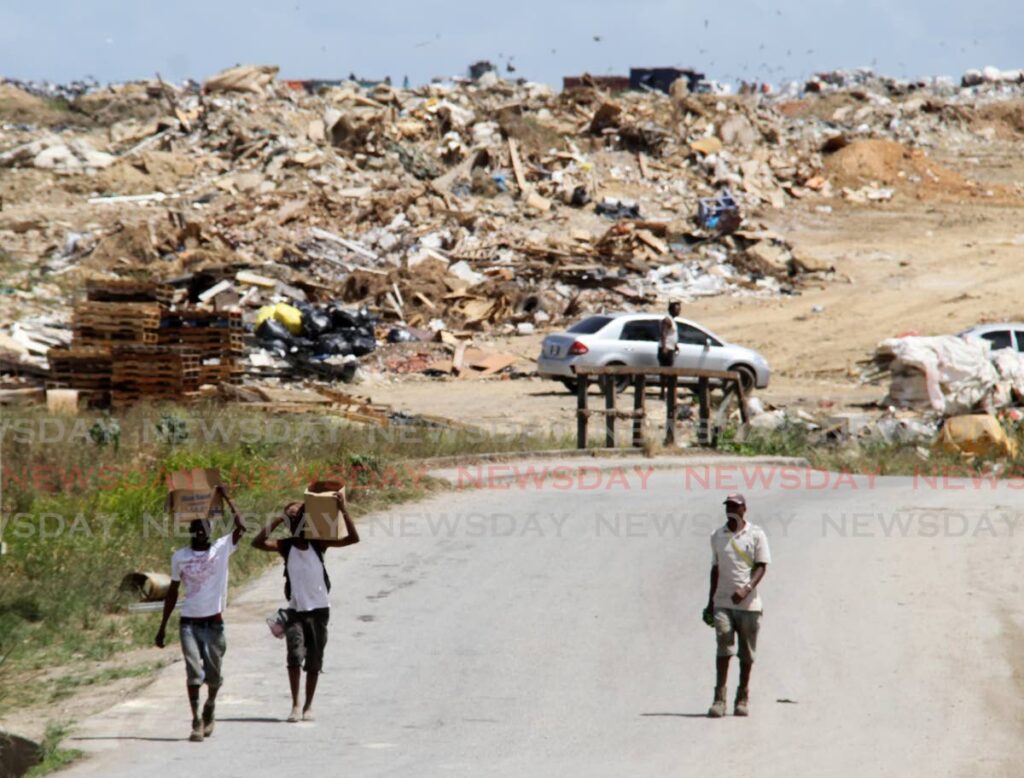One person's trash is another's treasure

While most people will look at garbage and think it’s just useless trash, that is far from the truth. If not precisely gold, society’s debris provides significant opportunity for revenue, waste reduction, and upcycling through recycling, repurposing, remanufacturing, repair, reuse, and refurbishment.
In some countries, trash-to-treasure holds an entirely different meaning. There, someone’s trash becomes the basis of someone else’s subsistence (https://www.postlandfill.org/trash-treasure-means-subsistence/).
Waste-picking is taken up by extremely underserved communities which have few alternative means of earning income. In TT, that sort of subsistence activity is most notable around landfills, but also is reflected in the rise of scrapyards. While its prominence in some communities bordering landfills point to major systemic inequities of opportunity that need to be alleviated, this is a means of converting trash to treasure.
Part of our trash-to-treasure issue locally is the scale of the trash problem.
Trinidad’s three main landfills (two were formerly open-burning rubbish dumps situated outside Port of Spain and Arima) receive approximately 700,000 tonnes of waste per year (1,500-2,000 tonnes per day); comprising 66 per cent household waste, and 33 per cent waste of industrial, commercial, and institutional origin.
Put another way, our waste per person averages between 1.5kg and 2 kg per day, according to the Solid Waste Management Company (Landfill Management, 2022). The capacity of the landfills, some of which are up to 40 years old, is estimated at 6.7 million tonnes of waste, but currently hold around 8.4 million tonnes of waste. SWMCOL’s eventual goal is to cut incoming waste by 50 per cent.
Another issue is the link between trash prevalence, littering and environmental damage. In TT, single-use disposables are leading to widespread flooding – detrimental to watersheds and marine life in the waters surrounding the islands (https://dizzannebillyblog.wordpress.com/2016/03/29/trinidad-tobago-has-a-serious-waste-problem/). Part of the solution is to reduce and treat waste more smartly, through waste recycling initiatives.
Such initiatives in TT are still nascent. As one example, the Municipal Curbside Recycling Programme (MCRP) allows SWMCOL to partner with municipalities to:
• Introduce voluntary community curbside recycling initiatives to incrementally achieve curbside recycling nationwide.
• Reduce environmental damage from illegal dumping pollution, and flooding
• Conserve landfill space by diverting valuable recyclables
• Provide communities with waste diversion through recycling programmes, promoting positive behavioural change.
For TT, another potential solution is to convert the trash to energy. In recent years, there have been initiatives and plans to tap the country's waste-to-energy potential as part of efforts to diversify its largely gas-fired power-generation park and help manage waste. More recently, initiatives to capture methane from landfills have commenced, as methane emissions from local landfills are a contributor to local GHG emissions. Captured methane molecules can be used for industry – more treasure, literally from trash.
TT’s traditional attitude to waste has been different from other Caricom nations', and not to our benefit.
Furthermore, options for reorienting production to maximise sustainability through reuse and reduction of materials and energy generally remain limited, owing to small market size and small scale of potential inputs.
However these challenges are being overcome with ingenuity and creativity. Reuse via regifting and thrifting is on the upswing.There are re-use pop-up stores that offer donated clothing for sale, or remanufacture into other garments. Additionally, there are local “give and take” groups that promote reusing and repurposing goods.
This suggests that people are becoming more aware of habits that create waste and the related environmental and sustainability impacts. It also suggests that enough people are consciously changing their behaviour and finally beginning the shift in mentality and habits needed to ensure more sustainable living.
The NGC contributed to this article submitted by the TT Chamber of Industry and Commerce.


Comments
"One person's trash is another's treasure"